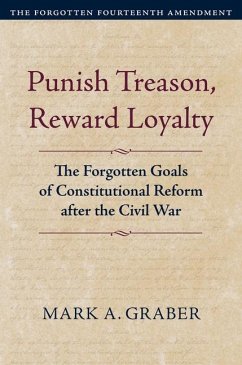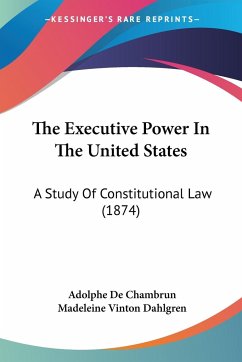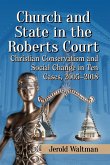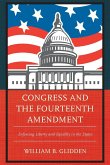In contemporary constitutional politics, Section 1 of the Fourteenth Amendment--which includes the citizenship, privileges and immunities, due process, and equal protection clauses--is the star of the show. But this was not the focus for the Republican members of the Thirty-Ninth Congress. Their interest was instead in Sections 2, 3, and 4. Today we tend to think the purpose of the Fourteenth Amendment was to protect persons of color. But the Republicans engaged in Reconstruction saw its purpose as preventing "rebel rule" by punishing treason and rewarding loyalty, particularly the loyalty of white men who remained faithful to the Union during the Civil War. In this first of three planned volumes for the University Press of Kansas's Constitutional Thinking series, Mark A. Graber aims to restore to contemporary memory the Fourteenth Amendment drafted by those Republican and Unionist members of Congress who supported congressional reconstruction. In Punish Treason, Reward Loyalty, Graber breaks new ground researching Reconstruction, the Fourteenth Amendment, and constitutionalism by highlighting the importance of Sections 2, 3, and 4 to the representatives in the Thirty-Ninth Congress and their relative indifference to Section 1. His work underscores the importance and impact that legislative primacy and partisan supremacy had to Republican constitutional thinking about constitutional authority immediately after the Civil War. Centered on Reconstruction and constitutional reform, Graber shows anew the Republican effort to prevent rebel rule by empowering and protecting loyalty.
Hinweis: Dieser Artikel kann nur an eine deutsche Lieferadresse ausgeliefert werden.
Hinweis: Dieser Artikel kann nur an eine deutsche Lieferadresse ausgeliefert werden.








